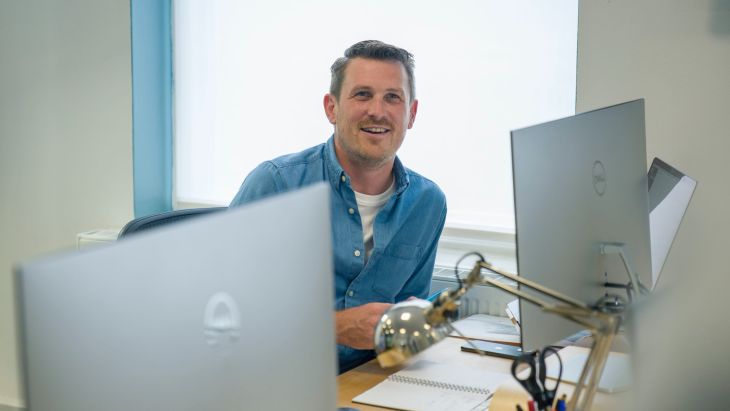
Like many, I have been thrust into the completely new situation of leading our team remotely.
Social Distancing means I don’t see any of our 12 staff face to face, only ever via video or voice calls. I wasn’t prepared or expecting such a dramatic change in the way I complete my role. Suddenly leading our team wasn’t as natural or as easy for me, I’ve had to make quick changes to ensure the good ship Brightec continued to maintain a steady course.
We were already used to the practicalities of working remotely. Before COVID-19 we had been working as a team remotely on Fridays. Grabbing a few things from the office ensured that everyone could pretty much continue their normal work as before. Individual-work for many actually became easier, but team-work has become harder. Specifically working collaboratively and cohesively.
I’m a relational person, so up till now, I have led by being present with the team. I’ve been around to listen in to conversations, wander around and see how people are doing and generally keep a finger on the pulse by being there. Suddenly that is no longer possible and without quick and significant change I felt I would lose the ability to lead our fantastic team.
A few things we’ve changed in the last few weeks:
We have a mature, autonomous, trustworthy team (a team of adults!). I can be confident they are doing the right thing, given the right information. Previously much of my communication with the team would be very informal; chats over lunch or on the way to Sainsburys, over breakfast on a Monday or just sitting at someone's desk. The only formal communication was a quarterly presentation outlining where we were financially and setting the direction for the upcoming period. When we moved to full-time remote, I realised that communication in many situations had to become more structured.
Here are a few of the changes we have made to communication in the last few weeks:
Almost immediately when we moved to work from home I realised that the way I had been managing was unsustainable. Up till that point I had input into pretty much all the projects and client work. I’d help with the direction, do some of the client comms, help with the reporting and generally contribute to the product and project management. I wasn’t micromanaging, it was just how the company had developed.
We were able to quickly shift so that others in the team could take responsibility for significant areas of the business. This included outbound sales and clients projects, but also other areas of the business. These people are already doing better at the roles than I did and I’m grateful that this situation forced my hand to make the change.
We have an exceptional relational team. We genuinely get on and enjoy each other's company, it's one of the things that makes Brightec Brightec. The challenge therefore in these unusual and difficult times is how we maintain this culture without being around each other. I don’t think we’ve totally cracked this yet but one of the things we can do is make time in the diary for the informal. For us this looks like:
In this season I’ve heard lots of talk from leaders of companies asking why they have an office when people work so well remotely. I can tell you at the moment, I have no plans to ditch our office. Working collaboratively with our clients is one of our biggest selling points, it is why we have UK developers and one of the reasons why we work from an office 4 days of the week. Deep collaboration is simply not possible remotely, and we have no plans to change this.
Perhaps even more importantly our office is a place of refuge for many of our team, an organised, structured environment to get on with work. It is a place of relationship and friendship, somewhere we get to work with our friends to achieve great things for our clients. We enjoy working together, we enjoy each other's company. So once this period is over and we’re allowed to return, you’ll find us eating, laughing and most important working together, it is who Brightec are and we’re not about to change that.
Search over 400 blog posts from our team
Subscribe to our monthly digest of blogs to stay in the loop and come with us on our journey to make things better!